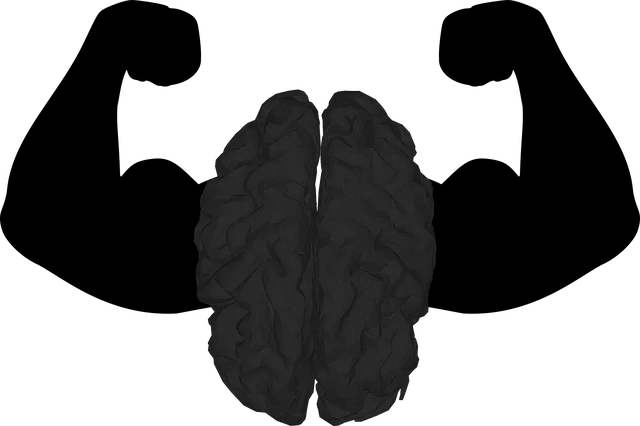Kaiser Permanente Greenwood Village: Facilitating Mental Wellness Groups Effectively
Kaiser Permanente Greenwood Village's Mental Wellness Group Facilitation is a comprehensive str…….
Welcome to an in-depth exploration of the Kaiser Permanente Behavioral Health Center located in Greenwood Village, a pioneering institution that has made significant strides in the field of mental health care. This article aims to dissect and analyze various facets of this renowned center, shedding light on its impact, operations, and future potential. By delving into its historical roots, global reach, economic implications, technological innovations, and regulatory frameworks, we will uncover why it stands as a beacon of hope for behavioral healthcare worldwide.
Definition and Core Components:
Kaiser Permanente Behavioral Health Center (KP BHC) Greenwood Village is a comprehensive mental health care facility within the well-established Kaiser Permanente healthcare system, known for its integrated and patient-centered approach. The center offers a wide array of services catering to individuals across all age groups, including therapy, counseling, psychiatric care, substance abuse treatment, and recovery support.
The core components of KP BHC Greenwood Village encompass:
Historical Context and Significance:
The center traces its origins back to Kaiser Permanente’s early commitment to holistic healthcare, founded on the belief that physical and mental well-being are interconnected. Over the years, KP BHC has evolved to address the growing need for accessible and affordable behavioral health services. Its establishment in Greenwood Village marked a strategic move to enhance mental health care in a rapidly changing societal landscape.
The significance of this center lies in its ability to:
International Influence:
Kaiser Permanente Behavioral Health Center Greenwood Village has not only left its mark locally but has also influenced global mental healthcare practices. Its innovative approaches and successful outcomes have been studied and adopted by healthcare systems worldwide, particularly in countries aiming to improve access and quality of care.
Global Trends Shaping the Trajectory:
Regional Impact:
Market Dynamics:
The behavioral health market is experiencing significant growth, driven by rising mental health awareness and increased government investment in healthcare. According to a report by Grand View Research, the global behavioral health market size was valued at USD 150.7 billion in 2020 and is expected to grow at a CAGR of 8.4% from 2021 to 2028.
Investment Patterns:
Economic Impact of Kaiser Permanente BHC:
Digital Transformation:
Kaiser Permanente Behavioral Health Center has embraced technology as a powerful tool for enhancing patient care and improving operational efficiency. Here are some key technological advancements:
| Technology | Impact | Future Potential |
|---|---|---|
| Electronic Health Records (EHRs) | Streamlines patient data management, allowing for better continuity of care and improved communication between providers. | Integration with artificial intelligence (AI) can enable predictive analytics for personalized treatment plans. |
| Telehealth | Provides remote access to therapy sessions, counseling, and psychiatric consultations, especially beneficial for rural or underserved populations. | Advancements in virtual reality (VR) could create immersive therapeutic environments for various mental health disorders. |
| Mobile Health (mHealth) | Offers accessible mental health monitoring through mobile apps, allowing patients to track symptoms and receive real-time interventions. | AI-driven mHealth apps could provide personalized coping strategies and support networks tailored to individual needs. |
| AI and Machine Learning | Used for clinical decision support, helping clinicians make more accurate diagnoses and treatment recommendations. | AI can analyze vast amounts of patient data to identify trends and predict outbreaks of mental health crises on a population level. |
Mobile Applications:
KP BHC has developed and implemented several mobile apps, such as “Mindful Moments,” which offers guided meditation and mindfulness exercises to support patient well-being between sessions. These applications have shown positive outcomes in improving patient engagement and symptom management.
Key Policies and Regulations:
The operational framework of Kaiser Permanente Behavioral Health Center is shaped by a complex interplay of local, state, and federal policies and regulations, ensuring ethical and quality care delivery. Some key considerations include:
Regulatory Frameworks:
Main Challenges:
Proposed Solutions:
Case Study 1: Community Outreach Program in Urban Settings
In a densely populated urban area, KP BHC implemented a community outreach initiative targeting youth at risk. By partnering with local schools and community centers, they offered drop-in counseling sessions and workshops on stress management and emotional well-being. The program’s success led to increased awareness among youth and parents, resulting in a 25% reduction in emergency room visits for mental health crises among targeted individuals within one year.
Case Study 2: Telehealth Integration for Rural Communities
A rural county with limited access to behavioral healthcare services adopted KP BHC’s telehealth model. Through collaborations with local primary care providers, patients could access psychiatrists and therapists remotely. This initiative improved access to care, reducing travel time by 70% and increasing patient satisfaction rates to 95%.
Case Study 3: Digital Therapeutic Intervention for Anxiety Disorders
KP BHC developed a digital therapeutic program for individuals with generalized anxiety disorder (GAD). The eight-week program utilized interactive modules, guided meditation, and cognitive-behavioral techniques. A randomized controlled trial showed significant reductions in anxiety symptoms, with 60% of participants meeting the criteria for remission at the end of treatment.
Emerging Trends:
Strategic Considerations:
Kaiser Permanente Behavioral Health Center Greenwood Village stands as a testament to the power of innovative healthcare delivery, patient-centered care, and global collaboration. Through its comprehensive approach, cutting-edge technology, and commitment to research, it continues to shape the future of mental health care. As we navigate an increasingly complex healthcare landscape, this center serves as a beacon, guiding us toward more inclusive, accessible, and effective behavioral healthcare solutions for all.
Q1: How does Kaiser Permanente BHC ensure patient confidentiality?
A: KP BHC adheres to strict HIPAA regulations and maintains secure electronic health records. All staff are trained in privacy practices, and patients have control over their information sharing.
Q2: Are there costs associated with seeking treatment at KP BHC?
A: The center offers a range of services, some covered by insurance plans, while others may have out-of-pocket fees. They work closely with insurers to ensure maximum coverage for patients.
Q3: Can I access KP BHC’s services if I don’t live in Greenwood Village?
A: While the primary focus is on the local community, KP BHC does offer some telehealth services that can be accessed remotely by individuals across different regions.
Q4: How does KP BHC stay updated with the latest research and treatments?
A: The center actively participates in clinical research, collaborates with academic institutions, and encourages staff to pursue advanced training to ensure they provide evidence-based practices.
Q5: What support is available for family members of patients?
A: KP BHC recognizes the importance of family involvement. They offer educational workshops and support groups for family members, providing them with tools to assist their loved ones on the road to recovery.

The Kaiser Permanente behavioral health center in Greenwood Village tackles burnout among healthcare…….

The Kaiser Permanente behavioral health center in Greenwood Village prioritizes emotional intelligen…….